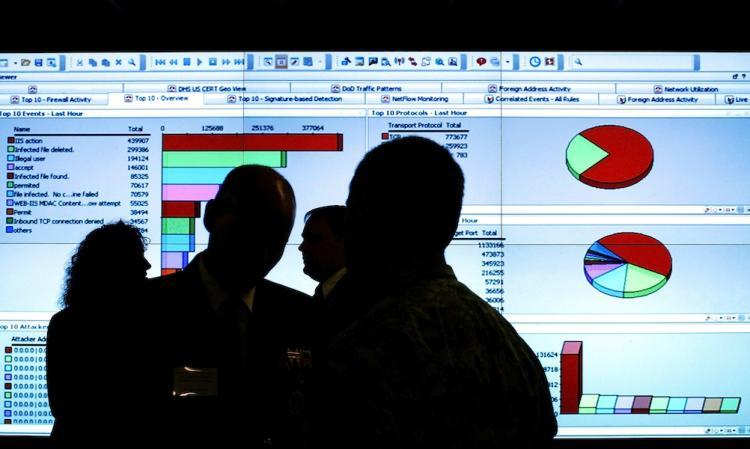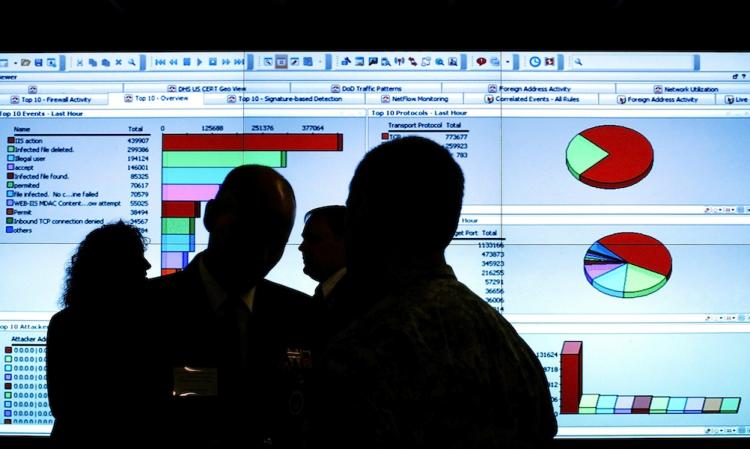The Fine Balance Between Cybersecurity and Internet Freedom
A wide-ranging cybersecurity bill was passed unanimously by the Senate Committee on Homeland Security and Governmental Affairs.

A Homeland Security event for Cybersecurity and Communications Integration Center facility. A wide-ranging cybersecurity bill was passed unanimously by the Senate Committee on Homeland Security and Governmental Affairs, last week. Win McNamee/Getty Images
|Updated:
Joshua Philipp is senior investigative reporter and host of “Crossroads” at The Epoch Times. As an award-winning journalist and documentary filmmaker, his works include “The Real Story of January 6” (2022), “The Final War: The 100 Year Plot to Defeat America” (2022), and “Tracking Down the Origin of Wuhan Coronavirus” (2020).
Author’s Selected Articles






